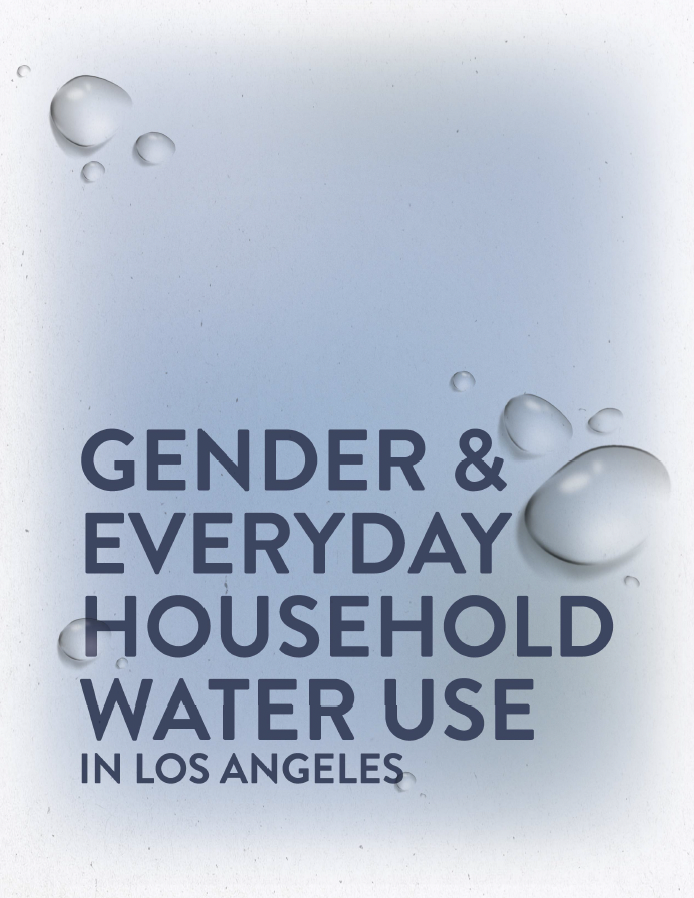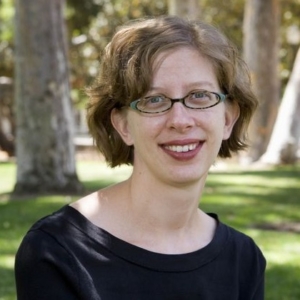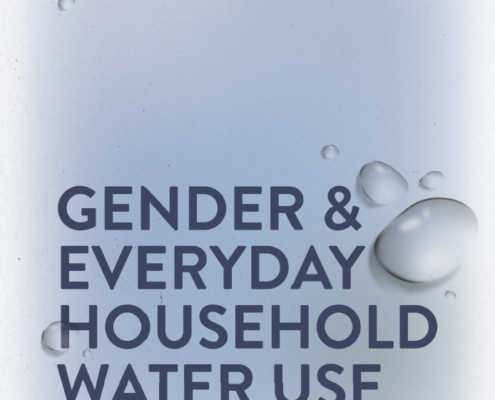Gender and Everyday Water Use in Los Angeles Households
Two-thirds of the world population will live in conditions of water scarcity by 2025, and water is of paramount concern to the sustainability of life in Los Angeles.
Researchers at the UCLA Center for the Study of Women|Streisand Center are investigating the important but understudied role of gender—as it intersects with race and class—in residential water use in Los Angeles. The goal of creating culturally acceptable pathways to reduce residential water use and increase use of greywater and other sustainable sources requires nuanced understanding of patterns in water’s everyday use and valuation. Many water use reduction efforts take place in households, where research has shown divisions of labor and decision-making are often gendered. Thus, a gender analysis of residential water is called for.
We ask:
- In what ways is household water use gendered in Los Angeles?
- What are the gendered patterns in household water valuation, as diversified by class and race?
- How do gendered cultural systems interact with water management and ecosystem health?
Findings are expected to yield recommendation for reductions in residential water use.
About the Project
Past Event Highlights
Gender & Water Research Masterclass | May 2019
Book talk: A Future History of Water | May 2019
Gender & Water Report
Los Angeles is a proving ground for urban water sustainability, but insufficient attention is paid to the social factors that shape our water use and management. Challenges for this global megacity include importing water, groundwater contamination, aging infrastructure, climate change unpredictability, and environmental justice issues such as water quality, access, and cost. Los Angeles experienced a record-setting drought between 2012 and 2016, with another between 2020 and 2023. After more than a century of population growth, Los Angeles imports most of its water from near and far, including regions with unsettled Indigenous water rights. Scholars and policymakers agree that water issues disproportionately affect women and girls in the Global South, but too little attention has been paid to how gender shapes everyday water use in the Global North. UCLA’s Center for the Study of Women|Streisand Center and its Sustainable LA Grand Challenge sought to address this knowledge gap with the Gender and Everyday Household Water Use in Los Angeles project.
UCLA’s Sustainable LA Grand Challenge
The UCLA Center for the Study of Women|Streisand Center Senior Faculty Research Associate Jessica Cattelino (PI) and former CSW Director Rachel Lee (Co-PI) were awarded a grant from UCLA’s Sustainable LA Grand Challenge program in order to tackle these questions. Her pioneering new research project, “Gender and Everyday Water Use in Los Angeles,” is the first of its kind and asks new questions about how to conserve water for future generations. Along with ten other initiatives funded as part of the Sustainable LA Grand Challenge this year, this study helps researchers and policymakers envision and build a more sustainable future for Los Angeles in the face of climate change.
The study examines how gender shapes the way that people use, value, and save water on an everyday basis. It is well known that women disproportionately procure and manage household water in developing nations. Despite the fact that household work and decision-making remain highly gendered in the United States, there is little scholarship on gender and residential water use here. Selecting four diverse Los Angeles neighborhoods, CSW researchers observed everyday gendered water practices, not only studying women but also documenting indoor and outdoor water practices for all adults over a two-year period.
By using a combination of anthropological methods—surveys, participant observation, etc.—and by explicitly using gender as an analytical lens, this study reveals new data about how gender intersects with race and class to inform the way that Angelenos use water and ways that we might conserve. CSW researchers will use the results of this study to advise legislators and policymakers on how to reduce water use, increase use of greywater, and encourage other sustainable indoor and outdoor residential practices.
Working Paper Series
This working paper series presents preliminary results from the Gender and Everyday Water Use in Los Angeles Study. Conducted by researchers at the UCLA Center for the Study of Women with the support of a Sustainable LA Grand Challenge Grant, this project investigates the important but understudied role of gender—as it intersects with race and class—in residential water use in Los Angeles. The goal of reducing residential water use requires nuanced understanding the ways that people use, think about, and value water.
In the context of international development, policymakers and researchers understand that gender shapes water, especially because women and children are disproportionately responsible for procuring water. In the United States, feminist scholars long have found that divisions of labor and decision-making are often gendered. Putting together these two bodies of knowledge, along with the fact that women have led many American water struggles, from Standing Rock to Flint to Compton, it is surprising that gender remains largely absent from water management and water research in the U.S. This study found that women disproportionately are responsible for the household management of water and for its use in households. It connects everyday life to the large-scale questions of water scarcity and management that face our world in the twenty-first century.
The five working papers in this series address a variety of topics that center on the everyday lives of Angelenos: Megan Baker examines gendered divisions of labor in families’ management of household water usage. Courtney Cecale explores the ways in which Los Angeles’ children are marshalled as advocates for water conservation. PwintPhyu Nander investigates the effect of generational knowledge and the immigrant experience on Angeleno families’ water consumption. Kelsey Kim explains the process of water diary-keeping that was essential to the study. Finally, Dalila Ozier delves into the rhetoric of disaster that underlies Los Angeles’ discourse around water. Their work connects everyday life to the large-scale questions of water scarcity and management that face our world in the twenty-first century.







